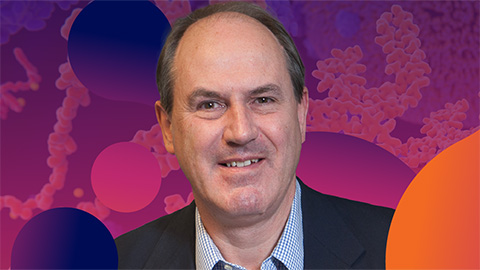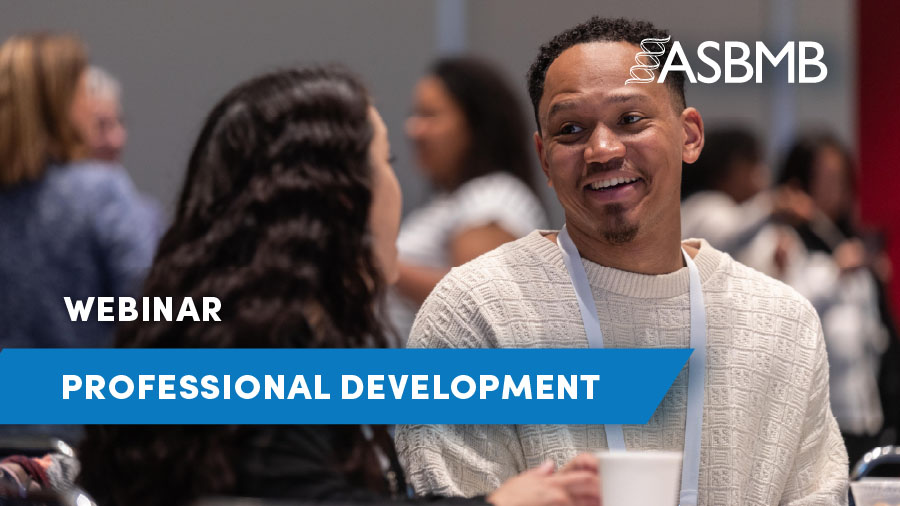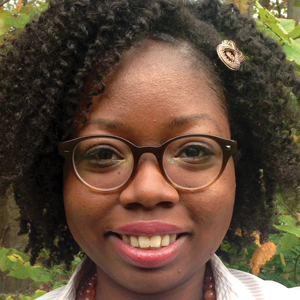‘Don't just stop at what you’re assigned to do’
Isaac Bell works in clinical assay development at The Jackson Laboratory, an independent, nonprofit research institute with five locations in the U.S. and Asia. Bell has worked at the Farmington, Connecticut, location for the past three years. He talked to ASBMB Today about his career path and current position. This interview has been condensed and edited.

Name: Isaac Bell
Current position: Bioinformatics analyst I, CLIA (Clinical Laboratory Improvement Amendments Program) Research and Development, The Jackson Laboratory
Education: Bachelor’s in chemistry from the University of San Diego
First job outside of academia: Lab technician at IsoPlexis
Favorite molecule or protein: “Calcineurin homologous protein B isoform-2. That's because that's the paper I first got published on as a first author publication from work that I did in undergrad.”
Why did you go into industry right after undergrad?
I looked very briefly into grad schools, but I didn’t have the grades. I decided to go into industry, and it worked out. Now I have probably a better job than I could have gotten if I continued on. The Jackson Labs is a research institute, so it’s about as close as you can come to an academic lab — but we have more funding.
How did you get started there?
I was at IsoPlexis, but they had to cut back during COVID. The day I got laid off, I got a message on LinkedIn from a recruiter looking for people for the COVID testing lab at the Jackson Laboratory. I started as a genomics technologist just running COVID tests every day for two and a half months before I got promoted into clinical assay development. The pandemic both made me lose my job and help me find a much better one.
What does a day in your life look like?
I work under the associate scientific director at the Jackson Laboratory for Genomic Medicine. My team makes sure all assays have smooth pipelines for both experimental workflow as well as data analysis.
I work mainly on the computational side. I do a lot of the data analysis.
Whenever we have a new sequencing pipeline, or anything like that, I make sure we have all the correct controls and that the experimental assay conditions are correct.
We also develop PCR-based approaches.
What skills do you need at work that you didn’t learn in college?
It is very important to have lab and research experience. I think that’s the main reason I got promoted. I was up against candidates who had Ph.D.s and master’s degrees. But because of my experience in the COVID lab, they knew that I had strong problem-solving skills and was able to work through complex protocols very efficiently.
I was a chemistry major — not even a biochemistry major. I learned all of the genomics in my current role. Now I would consider myself an expert on it.
There’s a lot of opportunities to learn while you’re in industry. You don’t necessarily need to go in with every single skill.
What advice do you have for students interested in pursuing a similar career?
Take as many lab courses and get as much time in a physical lab, like internships, as possible.
Also, when I was a genomics tech, I built good relationships with managers to learn the next steps in the process. So don’t just stop at what you're assigned to do, but have curiosity toward the next steps and the entire pipeline. That definitely helps show employers that you’re committed and helps with career advancement.
Enjoy reading ASBMB Today?
Become a member to receive the print edition four times a year and the digital edition monthly.
Learn moreFeatured jobs
from the ASBMB career center
Get the latest from ASBMB Today
Enter your email address, and we’ll send you a weekly email with recent articles, interviews and more.
Latest in Careers
Careers highlights or most popular articles

Upcoming opportunities
ASBMB's PROLAB award helps graduate students and postdoctoral fellows spend up to six months in U.S. or Canadian labs.

From humble beginnings to unlocking lysosomal secrets
Monther Abu–Remaileh will receive the ASBMB’s 2026 Walter A. Shaw Young Investigator Award in Lipid Research at the ASBMB Annual Meeting, March 7-10 in Washington, D.C.

Chemistry meets biology to thwart parasites
Margaret Phillips will receive the Alice and C. C. Wang Award in Molecular Parasitology at the ASBMB Annual Meeting, March 7-10 in Washington, D.C.

Decoding how bacteria flip host’s molecular switches
Kim Orth will receive the Earl and Thressa Stadtman Distinguished Scientists Award at the ASBMB Annual Meeting, March 7–10, just outside of Washington, D.C.

Defining JNKs: Targets for drug discovery
Roger Davis will receive the Bert and Natalie Vallee Award in Biomedical Science at the ASBMB Annual Meeting, March 7–10, just outside of Washington, D.C.

Upcoming opportunities
No matter where you are in your career and what future path you aspire to, everyone needs leadership skills. Join ASBMB for practical strategies for building and practicing leadership skills.

